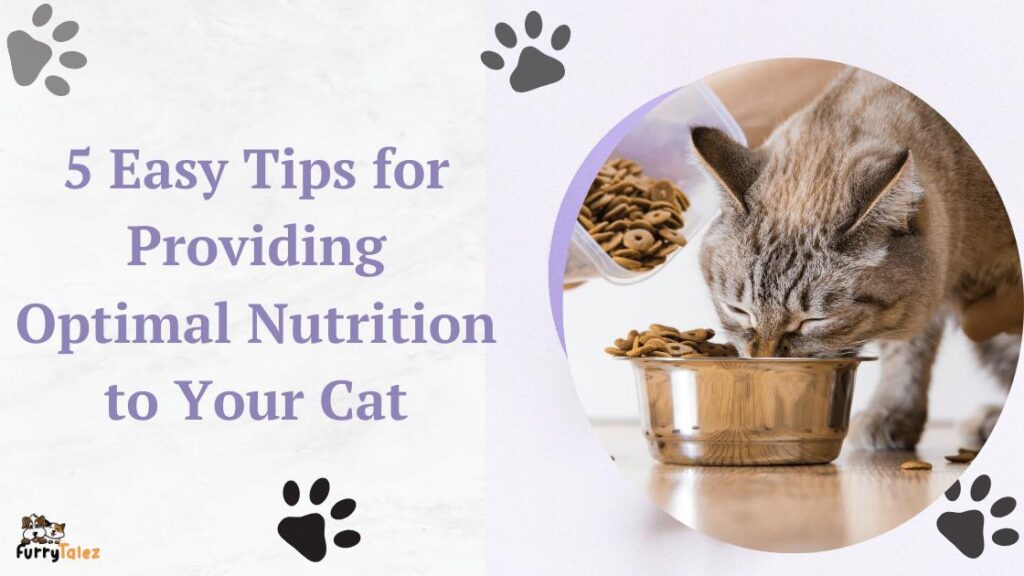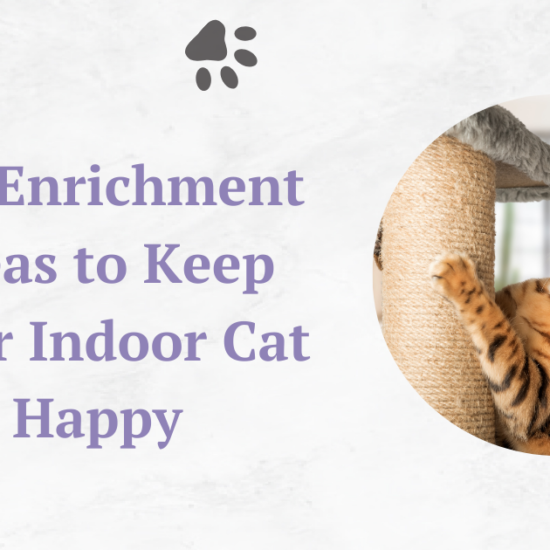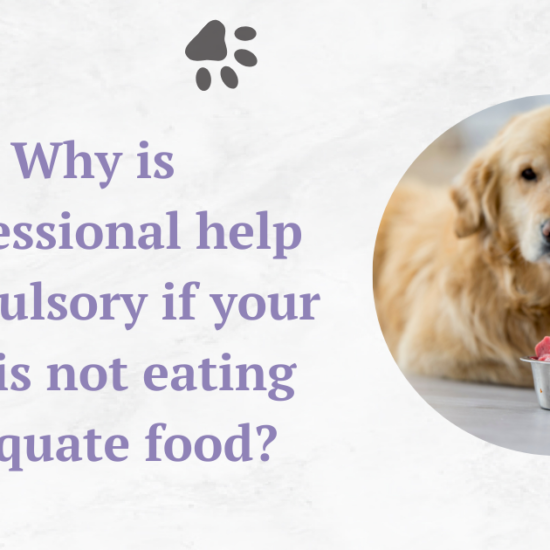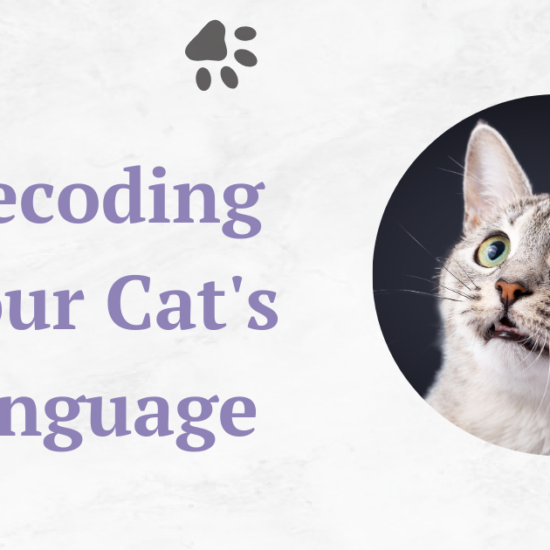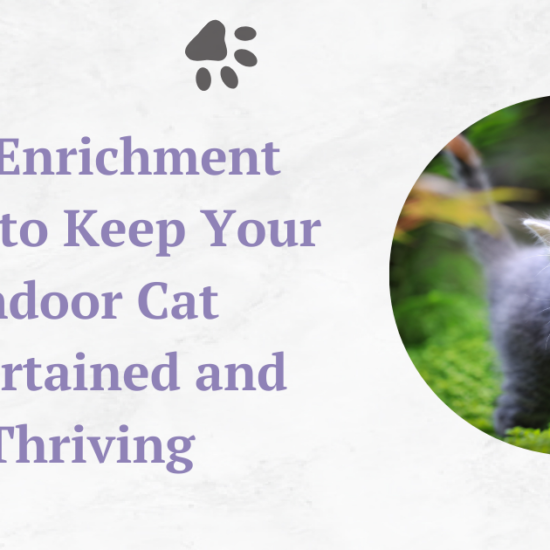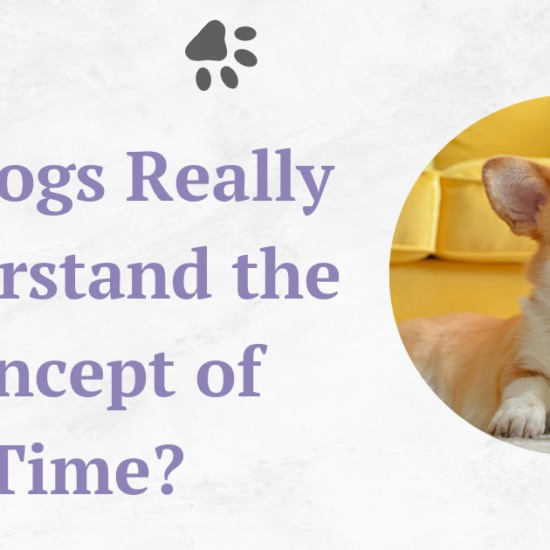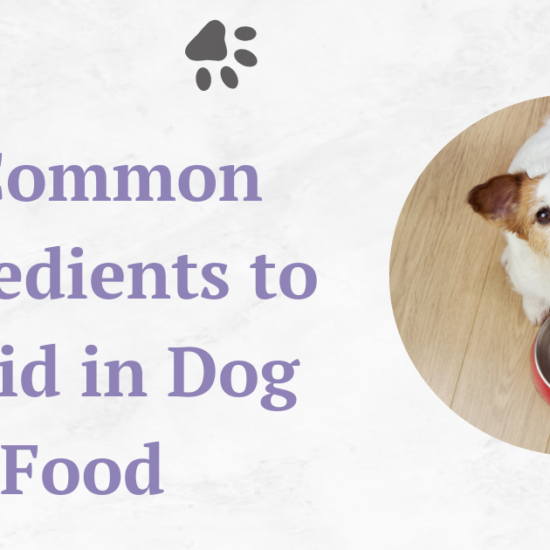Feeding your feline companion, a healthy and balanced diet is a cornerstone of responsible pet ownership. As devoted cat parents, we must prioritize their well-being by ensuring they receive the right nutrition.
Table of Contents
Introduction
In this comprehensive guide, we’ll explore five simple yet crucial tips to help you choose and provide the best cat food for your beloved furry friend.
Understand Your Cat’s Unique Nutritional Needs
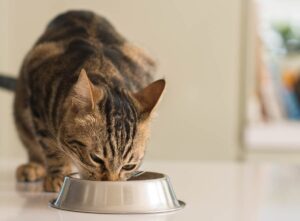
Cats are obligate carnivores, meaning their bodies require nutrients found exclusively in animal tissues. To meet their specific dietary requirements, opt for cat food that is high in protein and contains essential amino acids like taurine. Understanding and addressing these unique needs lay the foundation for a healthy and thriving feline friend.
Read the Labels: Unveiling the Ingredients Truth

When selecting cat food, invest time in reading and comprehending the labels. Choose brands that prioritize quality ingredients, with real meat or fish as the primary source of protein. Avoid options with fillers or by-products, as these might compromise the nutritional value of the food. Quality ingredients contribute to your cat’s overall health and vitality.
Say No to Artificial Additives: Keeping it Natural
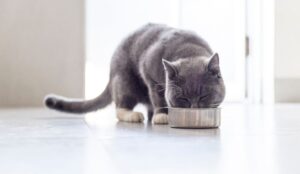
Just like humans, cats can be sensitive to artificial additives and preservatives commonly found in processed foods. Opt for natural cat food options that are free from artificial colors, flavors, and preservatives. Choosing a clean and natural diet enhances not only their physical health but also their longevity and well-being.
Gradual Transitions for Gentle Adaptation

Introducing new foods or switching your cat’s diet should be a gradual process. Sudden changes can upset their digestive system, leading to potential gastrointestinal issues. Gradually mix small portions of the new food with their current diet over 7-10 days until they comfortably adapt. This ensures a smooth transition without compromising their digestive health.
Note: There might be affiliate links mentioned here. We may receive a commission if you purchase a product through an affiliate link. There is no additional charge for you. Please do your own research before making any online purchases.
Seek Professional Guidance: Your Vet Knows Best
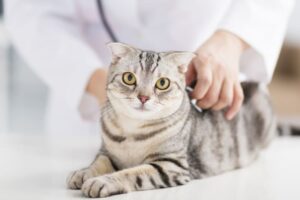
Consulting with your veterinarian is a crucial step in providing optimal nutrition for your cat. Veterinarians can offer valuable insights into your cat’s specific dietary needs, considering factors like age, weight, activity level, and any existing medical conditions. Professional advice ensures that your cat’s diet aligns with their individual requirements, promoting a long and healthy life.
Conclusion
By incorporating these five easy tips into your cat care routine, you can actively contribute to your feline friend’s overall well-being. A well-balanced and nutritious diet not only supports their physical health but also enhances their happiness and vitality. Prioritize your cat’s nutritional needs, and you’ll be rewarded with a content, energetic, and thriving companion for years to come.
Frequently Asked Questions (FAQs)
Q1: Why is understanding my cat’s nutritional needs important?
A1: Cats are obligate carnivores, requiring specific nutrients found only in animal tissues. Understanding these needs ensures their diet meets essential requirements for optimal health.
Q2: What should I look for when reading cat food labels?
A2: Focus on quality ingredients, with real meat or fish as the primary protein source. Avoid fillers or by-products. Quality labels contribute to your cat’s overall health.
Q3: Why should I avoid artificial additives in cat food?
A3: Cats, like humans, can be sensitive to artificial additives. Choosing natural options, free from artificial colors, flavors, and preservatives, promotes their well-being.
Q4: How do I transition my cat to a new food?
A4: Gradual transitions are crucial. Mix small portions of the new food with their current diet over 7-10 days to avoid upsetting their digestive system.
Q5: Can I consult with my veterinarian about my cat’s diet?
A5: Yes, consulting with your vet is essential. They can provide insights into your cat’s specific dietary needs based on factors like age, weight, activity level, and existing medical conditions.
Q6: Are there specific dietary considerations for cats with health issues?
A6: Yes, cats with health issues may require specialized diets. Consult with your veterinarian to address specific health concerns and tailor their diet accordingly.
Q7: How often should I review my cat’s diet?
A7: Regularly review your cat’s diet, especially if there are changes in their health, weight, or activity level. Periodic evaluations with your veterinarian ensure ongoing nutritional suitability.
Q8: Can I prepare homemade cat food?
A8: Homemade cat food requires careful consideration of nutritional needs. Consult with your veterinarian or a feline nutritionist to ensure a balanced and complete diet.
Q9: Should I choose wet or dry cat food?
A9: Both wet and dry cat food can be suitable. Consider factors like your cat’s preferences, dental health, and any specific dietary requirements when making a choice.
Q10: Can a cat’s nutritional needs change with age?
A10: Yes, a cat’s nutritional needs can change with age. Adjust their diet accordingly, with guidance from your veterinarian, to support optimal health at different life stages.


